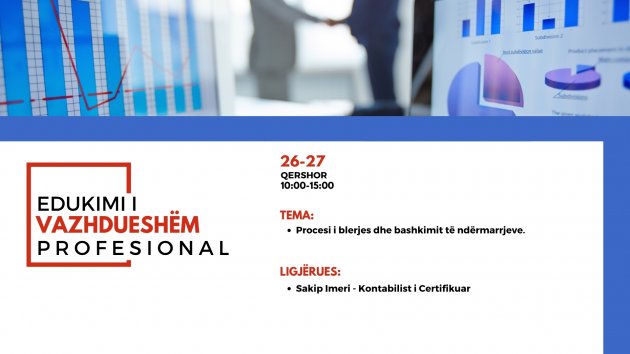Certified Auditor
2022-05-05 - 12:13
Certified Auditor is that person whose experience, theoretical training and professional qualification has qualified the holder of the designation to be appointed for carrying out external audits of the entity's financial statements. Auditors carry out audits on the accounts of companies and public organizations. They ensure that the organizations' finances are sound and that all legal and financial reporting standards are met.
Certified Auditors benefit from the following skills and you are able to:
- Introduce the application of professional values and judgments through an ethical framework
- Explain the role of the accountant in identifying and risk assessing
- Discuss the professional and ethical obligations of the accountant
- Give advice and report on the entity's financial performance
- Discuss the implications of changes in accounting rules or financial reporting
- Assess the performance and financial position of the entities
- Assess the available organization’s strategic position and choices
- Assess and re-design business procedures and structures to implement and support the organizational strategy
- Provide advice on project management principles to enable the implementation of aspects of an organization's strategy
- Understand the legal and regulatory environment and its impact on audit and security practices
- Identify and formulate requirements for achieving audit task objectives and apply ISAs
- Evaluate the findings and the results of the work carried out, prepare draft reports appropriate to the tasks
Qualification
The Certified Auditor first must qualify as Certified Accountant at SCAAK.
Not all Certified Accountants are required or need to qualify as Certified Auditors, unless they choose a career in providing legal audits and related services. The Kosovo Financial Reporting Council (KCFR) licenses auditors in Kosovo and the role of SCAAK is to ensure that they are certified in accordance with International Education Standards, the EU's 8th Directive and best international practices. In recent years, education standards and professional practice requirements for Legal Auditors have been updated, so the new SCAAK qualification scheme aims to ensure that Kosovo auditors are qualified with the highest international standards.
To be trained for a Certified Auditor, you must first be a SCAAK member and have completed the Qualification for a Certified Accountant. Membership at this level is open to all professionals who work in accounting and auditing and who have completed the level for a Certified Accountant.
Entry Requirements
- Qualification as Certified Accountants;
- 12 months of external audit work.
Syllabus for Certified Auditor
The Certified Auditor qualification training covers the following subjects and topics:



